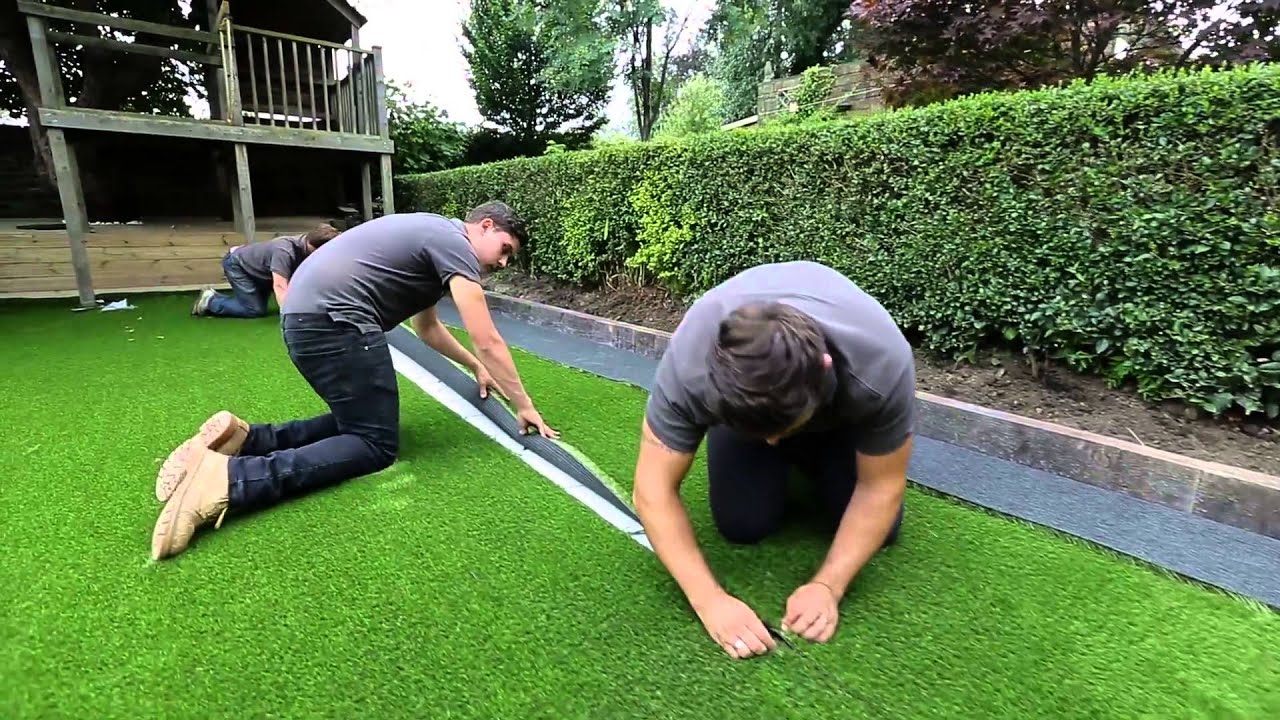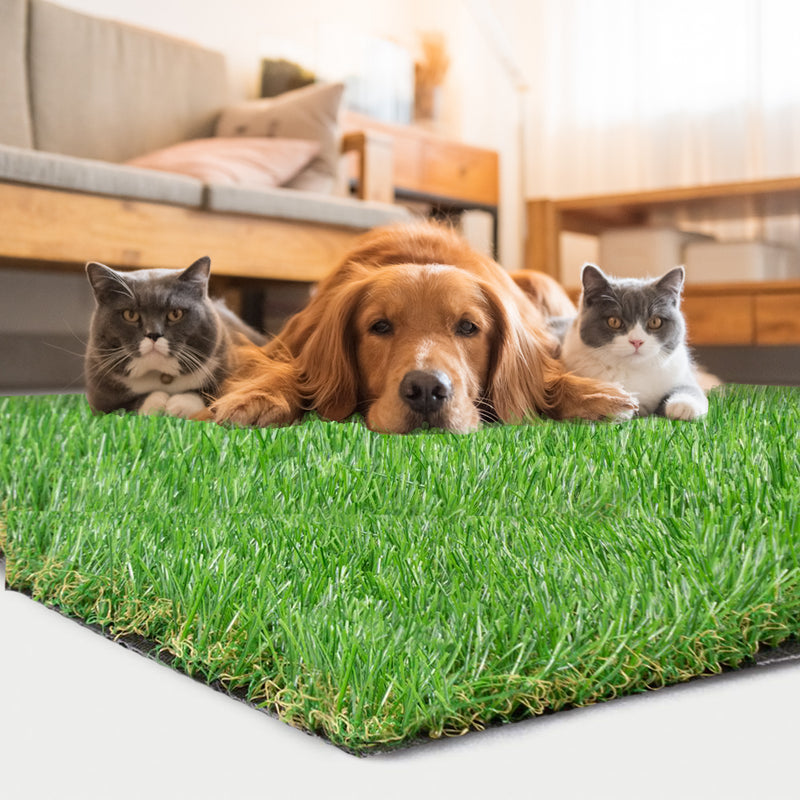High-Quality Arizona Turf Options for a Beautiful and Green Landscape
High-Quality Arizona Turf Options for a Beautiful and Green Landscape
Blog Article
Look Into the Environmental Advantages of Opting for Artificial Turf Solutions
The fostering of synthetic grass services presents a compelling possibility to deal with pushing ecological challenges. By considerably lowering water use and reducing the application of dangerous chemicals, these choices not just advertise lasting landscape design however additionally protect local ecosystems. In addition, the lower carbon footprint related to reduced upkeep tasks adds to a more sustainable approach to land management. The implications of these advantages extend beyond mere conservation efforts, increasing inquiries concerning their lasting impact on habitat preservation and general eco-friendly equilibrium. Discovering these measurements exposes a complex interaction worth considering.
Water Preservation Perks
Among one of the most considerable benefits of synthetic grass is its ability to conserve water. Typical grass yards need substantial watering, particularly in areas prone to drought or water constraints. On the other hand, synthetic grass does not need watering, substantially lowering the general need for water resources. This feature is especially helpful in dry regions where water shortage is a pressing concern.
By eliminating the demand for regular watering, synthetic grass contributes to sustainable landscape techniques and aids mitigate the ecological influence of too much water usage. Additionally, the preservation of water encompasses the decrease of drainage, which can cause dirt disintegration and waterway air pollution.
In addition, the installment of synthetic grass allows house owners and districts to assign water sources a lot more efficiently, concentrating on important uses such as drinking water and agriculture. The shift in the direction of synthetic turf not only advertises responsible water usage but likewise straightens with wider ecological objectives intended at protecting natural deposits.
As communities significantly focus on sustainability, the water preservation benefits of synthetic grass provide a compelling case for its fostering in household and business landscape design projects.
Lowered Chemical Use
The change to synthetic lawn dramatically lowers the reliance on chemical treatments typically used in natural turf maintenance. Traditional turf management generally includes the application of fertilizers, pesticides, and herbicides to promote growth and control parasites. These chemicals can posture dangers to human health and wellness, local wildlife, and the environment, adding to dirt and water contamination.
In contrast, man-made turf removes the need for these dangerous substances. By minimizing the launch of synthetic compounds into the community, fabricated lawn promotes healthier dirt and water systems.
Moreover, the absence of chemical drainage associated with synthetic grass installations aids shield regional waterways from pollution, supporting marine life and keeping biodiversity. Arizona turf. As areas increasingly focus on lasting methods, choosing synthetic grass presents a sensible remedy that lines up with ecological preservation goals. With this change, building proprietors can appreciate rich eco-friendly rooms without jeopardizing ecological health and wellness, leading the way for a more lasting future
Lower Carbon Impact

Furthermore, the installation of fabricated lawn can lead to significant water conservation. Natural lawns need substantial quantities of water for watering, which not only includes in the carbon impact associated with water removal and therapy yet also stress neighborhood water sources. On the other hand, synthetic grass requires very little upkeep, requiring no watering, thus significantly lowering water usage and its connected energy prices.
Additionally, the long life of artificial turf adds to its decreased carbon effect. With a life-span of her comment is here approximately 15 years or even more, the demand for frequent replacements is diminished, leading to less waste and lower power usage in production and throwing away traditional yard choices. On the whole, fabricated turf provides a lasting alternative for eco mindful landscape design.
Environment Conservation
Habitat conservation is a vital consideration in the argument over landscape design options, especially when contrasting synthetic grass to natural turf. All-natural yard lawns usually call for substantial maintenance, including making use of plant foods, chemicals, and herbicides, which can adversely influence regional ecological communities. These chemicals can seep into the dirt and waterways, hurting native vegetation and animals and disrupting local habitats.
In comparison, man-made turf provides a possibility to minimize the ecological impact of landscaping. By choosing artificial turf, home owners can lessen the interruption of natural environments connected with standard lawn care methods. Synthetic grass removes the demand for unsafe chemicals, thus shielding nearby wildlife and keeping the honesty of bordering ecosystems. Moreover, the installation of synthetic grass can cause the conversion of previous grass locations into more biodiverse landscapes, such as pollinator yards or indigenous plant areas, which can support local wild animals.
Ultimately, the change to synthetic grass not just conserves water and decreases upkeep initiatives but likewise cultivates a much more harmonious connection between human tasks and the all-natural atmosphere, promoting environment conservation in the procedure.
Long-Term Sustainability
Long-term sustainability is a critical aspect in evaluating the advantages of synthetic grass over conventional lawn yards. One of the most substantial benefits of synthetic grass is its toughness; it can last as much as 15-20 years with minimal upkeep, whereas natural lawn needs regular reseeding and replacement. This durability minimizes the demand for consistent resources, such as water, i loved this plant foods, and pesticides, which are important for preserving a healthy and balanced yard lawn.
Furthermore, synthetic grass adds to a decrease in carbon discharges connected with yard treatment equipment. Typical grass often need gas-powered mowers, trimmers, and blowers, all of which add to air pollution. Arizona turf. In contrast, fabricated lawn eliminates the requirement for such tools, advertising a cleaner setting
Additionally, the manufacturing of synthetic grass increasingly makes use of recycled products, enhancing its sustainability profile. As producers adopt green practices, the environmental footprint of synthetic grass continues to reduce.

Verdict
The fostering of synthetic grass options offers substantial ecological benefits, consisting of substantial water conservation, decreased reliance on dangerous chemicals, and a reduced carbon footprint. Additionally, synthetic grass aids in protecting natural habitats by decreasing land disruption and advertising long-term sustainability with using long lasting materials. Collectively, these factors highlight the potential of artificial lawn to add positively to environmental wellness and use a feasible alternative to traditional landscaping methods in an increasingly resource-conscious globe.
In contrast, fabricated lawn does not require watering, considerably decreasing the overall demand for water resources. By decreasing the launch of synthetic substances into the ecosystem, fabricated turf advertises healthier dirt and water systems.
In addition, the setup of artificial grass can result in substantial water preservation. In contrast, fabricated turf requires marginal upkeep, requiring no watering, consequently considerably lowering water usage and its linked power costs.

Report this page